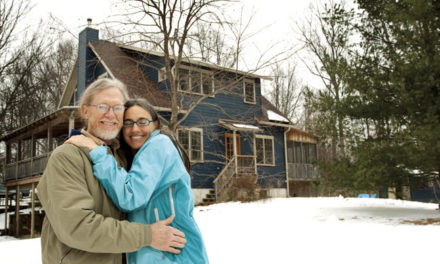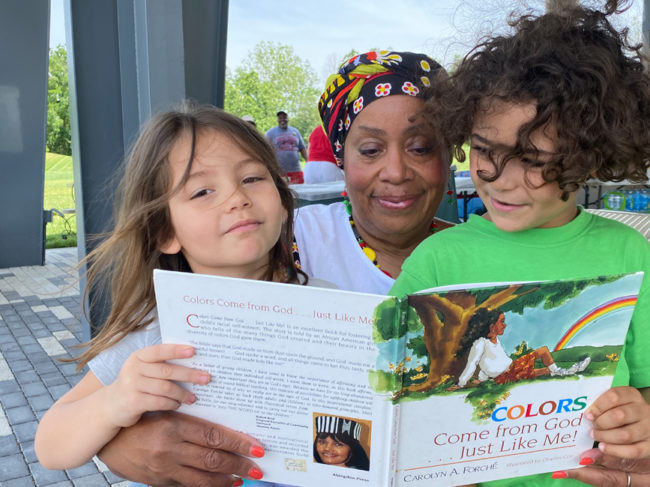
by SOPHIE BIRD
The City of Bloomington hosted its annual Juneteenth celebration at Switchyard Park on Saturday, June 19, just three days after President Joe Biden signed a bill into law that named Juneteenth a federal holiday.
The Juneteenth National Independence Day Act recognizes June 19 as the day that word of the Emancipation Proclamation reached enslaved people in Texas in 1865—two and a half years after the proclamation went into effect in 1863.
Historian Elizabeth Mitchell, who travels the United States and beyond in search of lost or untold Black stories, says the Bloomington event was “jubilant.”
“It was packed for what turned out to be a hot and humid afternoon,” Mitchell says. “I saw people I haven’t seen in years.”
The event featured food vendors, games, areas to sit and chat, and even free COVID-19 vaccinations.
“It was more like a family reunion,” Mitchell says. “We do like a family reunion thing whenever African Americans get together and it’s like we’re all kin. And we really are, because how are you going to say we’re not with the way slavery was dealt with in America.”
As the co-creator of WFHB’s Bring It On radio show, which explores the issues and events impacting Black Hoosiers, Mitchell says she interviewed local students who were surprised by the number of white attendees at the celebration.
“Even though there’s racism here, there are a lot of good people here,” Mitchell says, citing interviews she conducted with white people during the Juneteenth event who had marched in support of Black rights in the 1960s.
Recognizing Juneteenth as a federal holiday, she says, “is a step in the right direction.” But often a step forward for Black people in America is quickly followed by a step back.
“I’m 68 years old and I’m tired,” Mitchell says. “I’m tired, and I lived through Jim Crow and segregation in Indianapolis, Indiana . . . The next step for me is, let’s have an apology about the federal, state, and local laws, and then some reparations . . . An apology would be nice. Never have gotten that after 400 years. But making Juneteenth a federal holiday is a step.”
“I never thought I’d live long enough to see a Black president, and now to see Juneteenth become a federal holiday. . .” she continues. “Now I just need to live long enough to see a woman become president.”
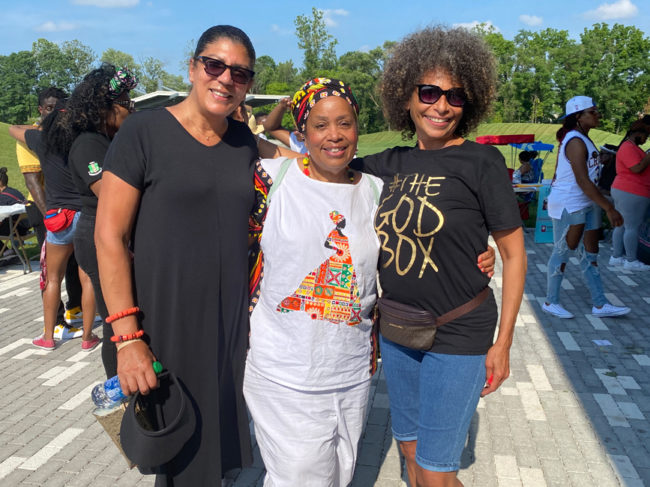
Photo courtesy of Elizabeth Mitchell 
Photo by Elizabeth Mitchell 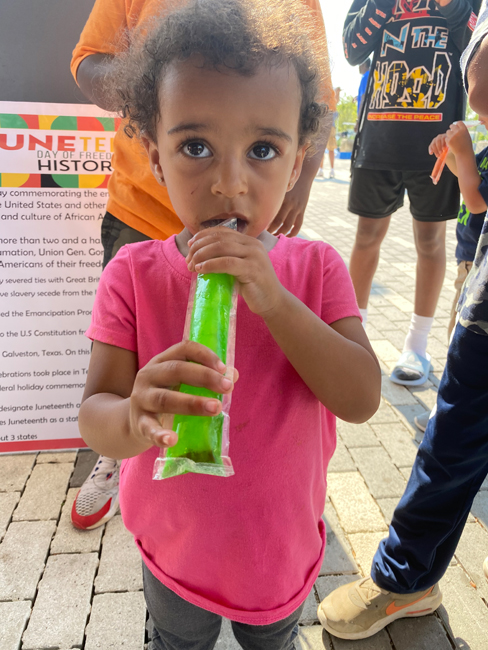
Photo by Elizabeth Mitchell 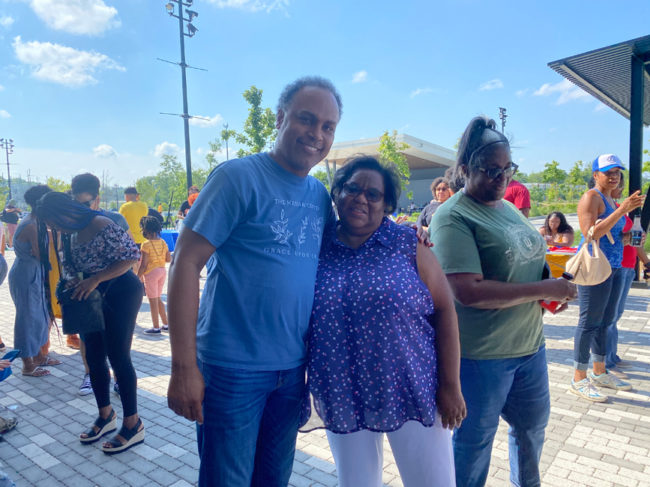
Photo by Elizabeth Mitchell 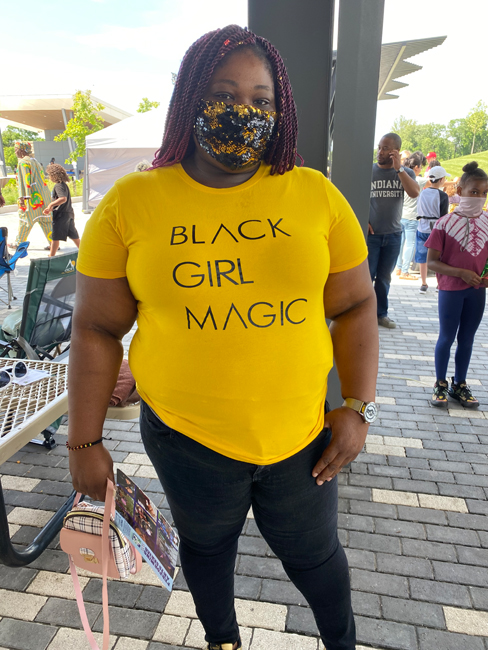
Photo by Elizabeth Mitchell 
Photo courtesy of Elizabeth Mitchell 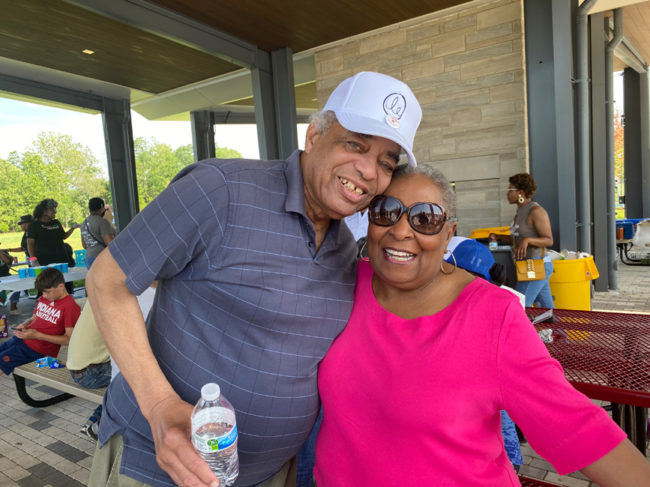
Photo by Elizabeth Mitchell 
Photo by Elizabeth Mitchell 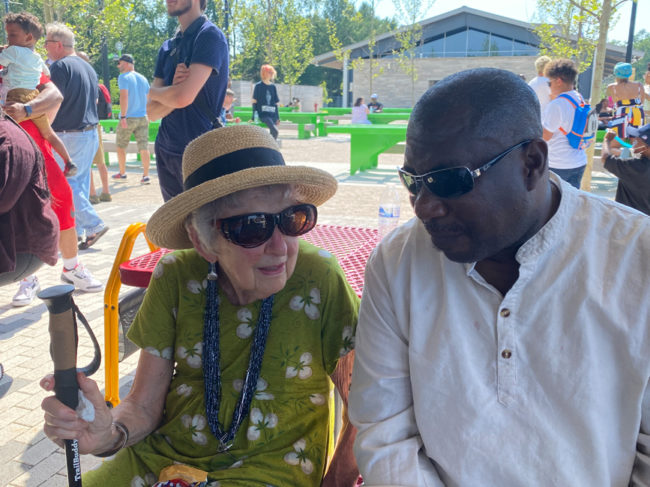
Photo by Elizabeth Mitchell 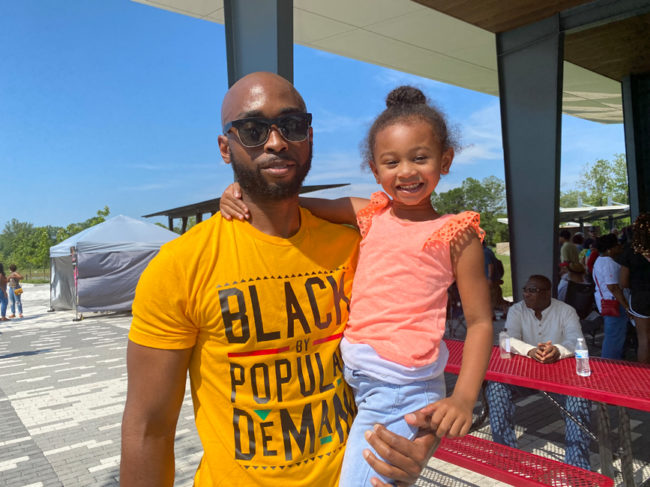
Photo by Elizabeth Mitchell 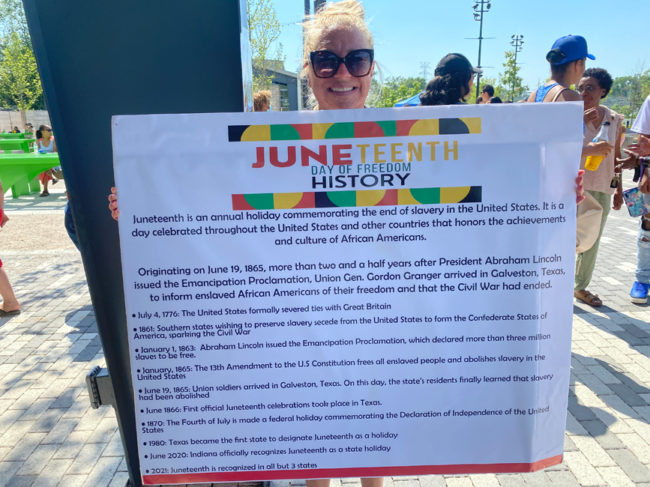
Photo by Elizabeth Mitchell 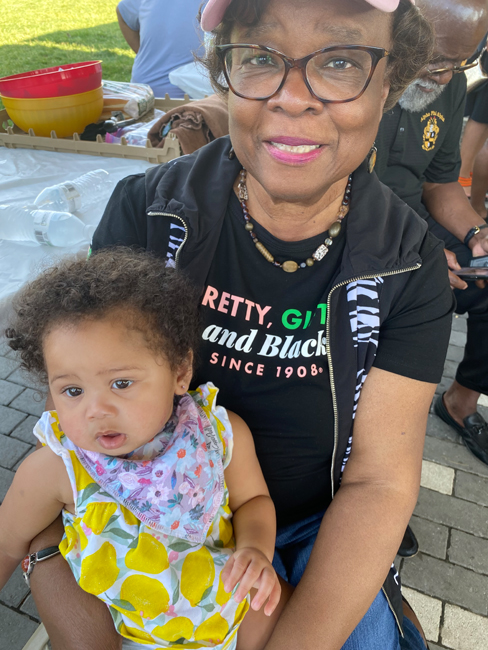
Photo by Elizabeth Mitchell 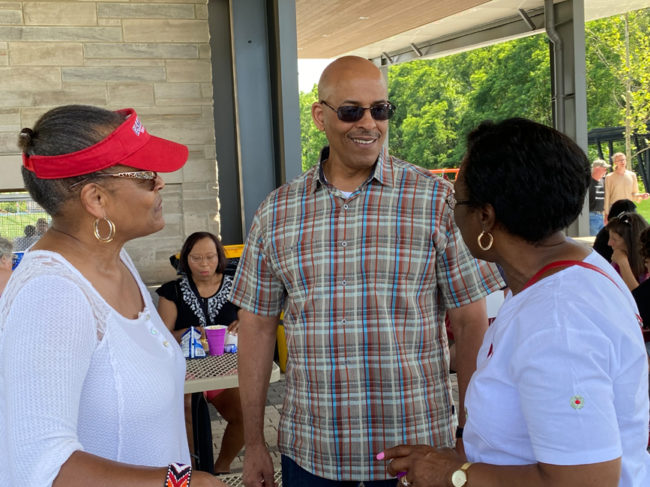
Photo by Elizabeth Mitchell 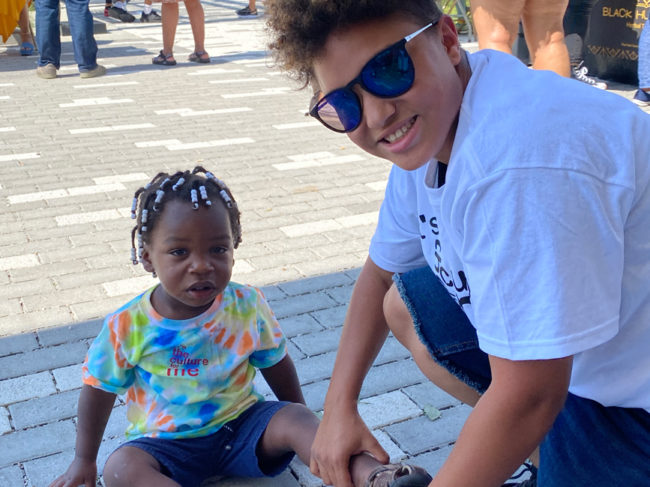
Photo by Elizabeth Mitchell 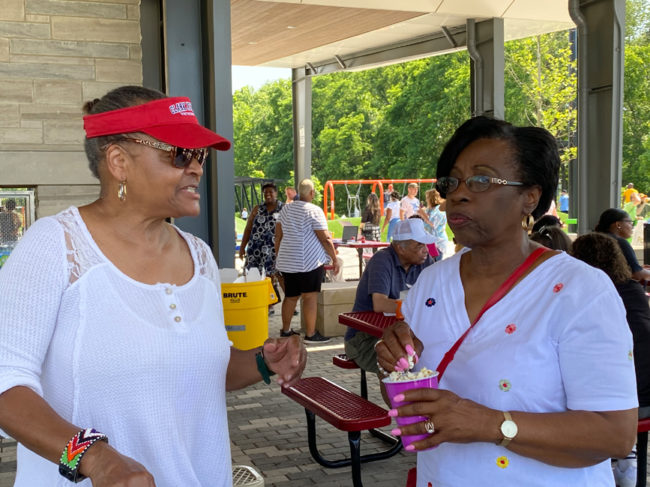
Photo by Elizabeth Mitchell 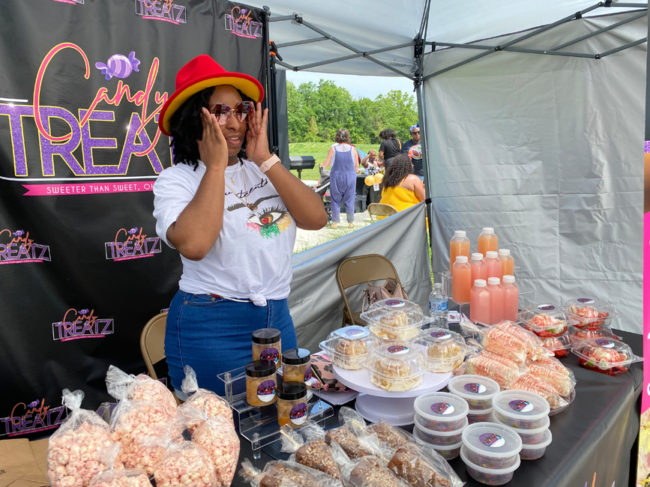
Photo by Elizabeth Mitchell 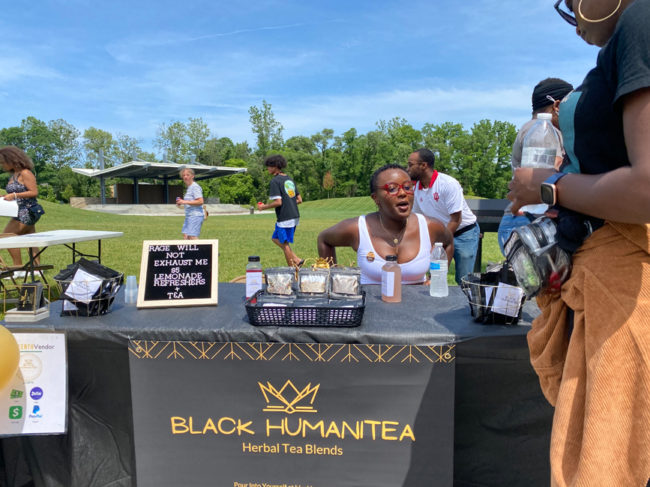
Photo by Elizabeth Mitchell 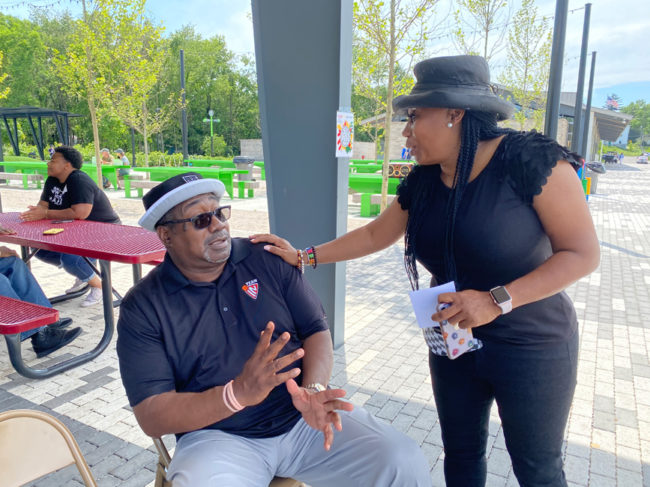
Photo by Elizabeth Mitchell 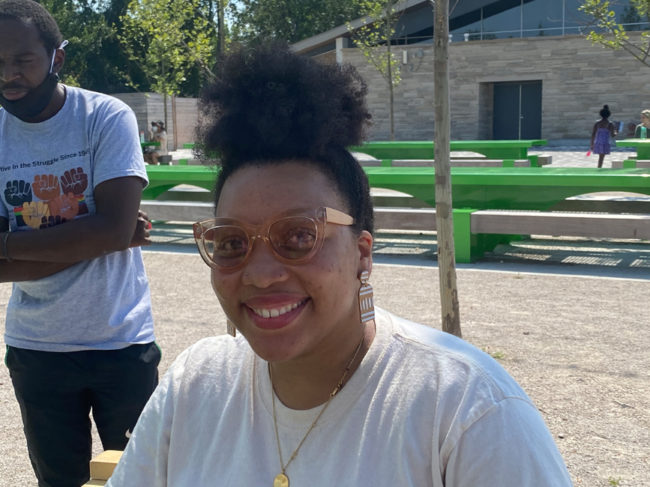
Photo by Elizabeth Mitchell 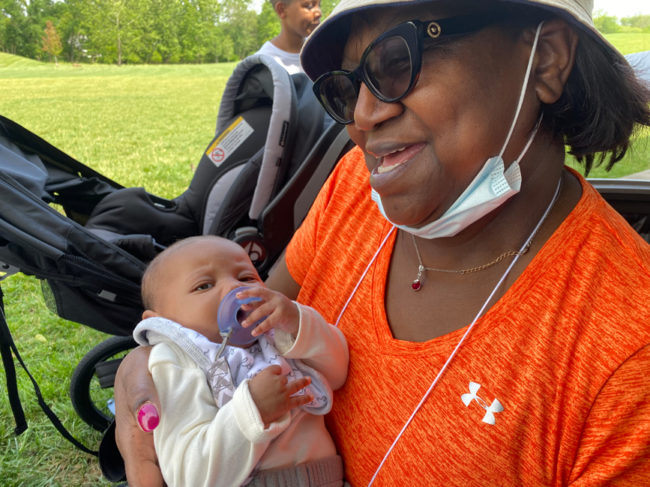
Photo by Elizabeth Mitchell 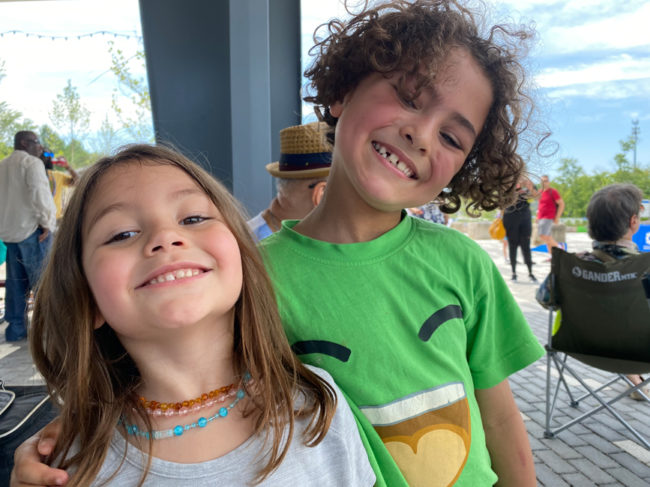
Photo by Elizabeth Mitchell 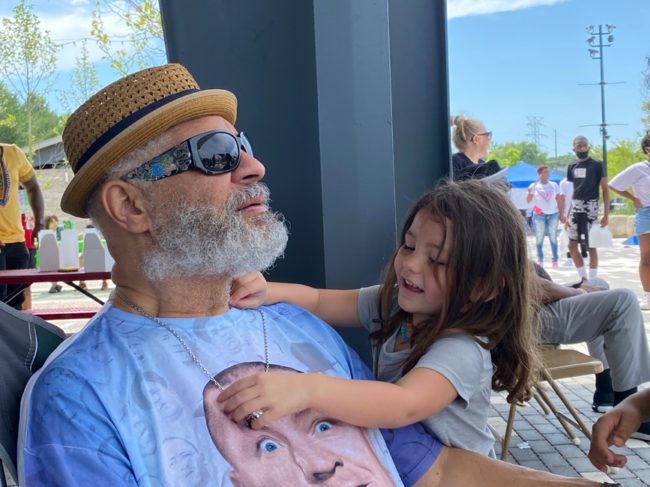
Photo by Elizabeth Mitchell





